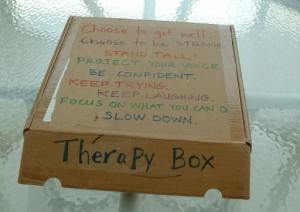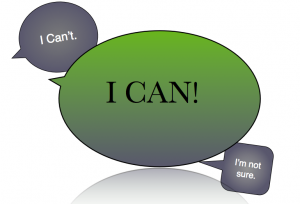by Karen Keller Capuciati
A couple of months after our Mom’s stroke, she was dealing with stress, sleeplessness and a terribly stiff neck. She had just completed a month in a rehab facility, and returning home brought on new and unexpected difficulties.
For Mom, coming home was a sign that her life was returning to normalcy. But it also ended up pointing out the deficits left by her stroke when everyday events were now a great challenge. Cooking, for example, meant reading an ingredient list, writing a shopping list, setting a timer, none of which were possible at the time. Even the grocery store, with all the choices and stimuli, was way too much for her at this time in her early recovery.
Continue Reading









